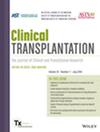Intraoperative Cardiac Arrests in Asian Recipients of Liver Transplantation—Second Report After Learning Curve
Abstract
Background
Although surgical competency and anesthesia for liver transplantation (LT) have evolved significantly in the past decades, intraoperative cardiac arrest (ICA) is still an event that brings a poor prognosis to the recipient. We report a second-decade experience of ICA as a follow-up study of our first report at our institution.
Methods
This is a retrospective observational study of the medical records and the Liver Transplant Program database of our institution. LT from January 2011 to June 2023 were included. Of the 1735 LT cases, a total of 1730 cases were included, excluding three non-Asian and two simultaneous heart and liver transplants (1598 adult LT, 132 pediatric LT).
Results
The ICA incidence during adult LT was 0.7% (11/1598) which is significantly lower compared to our first report (1.5%; 14/919) (p = 0.042). ICA occurred only in adult recipients. Post-reperfusion syndrome (PRS, six cases) and bleeding (four cases) were the primary causes in most cases and most ICA occurred after reperfusion (10/11). The mortality rates within 24 h, 30 days, and 1 year were 27.3%, 45.5%, and 54.5%, respectively. The survival curve did not show a significant difference from our first report (p = 0.570), and the survival rate of the ICA group was significantly lower compared to the non-ICA group. (p = 0.000)
Conclusion
The incidence of ICA has decreased, but the main causes of ICA as PRS and bleeding after reperfusion have not changed. Additionally, there was no significant difference in the survival curves from the first report. Because ICA is still fatal, efforts to reduce its incidence should be continued.

 求助内容:
求助内容: 应助结果提醒方式:
应助结果提醒方式:


